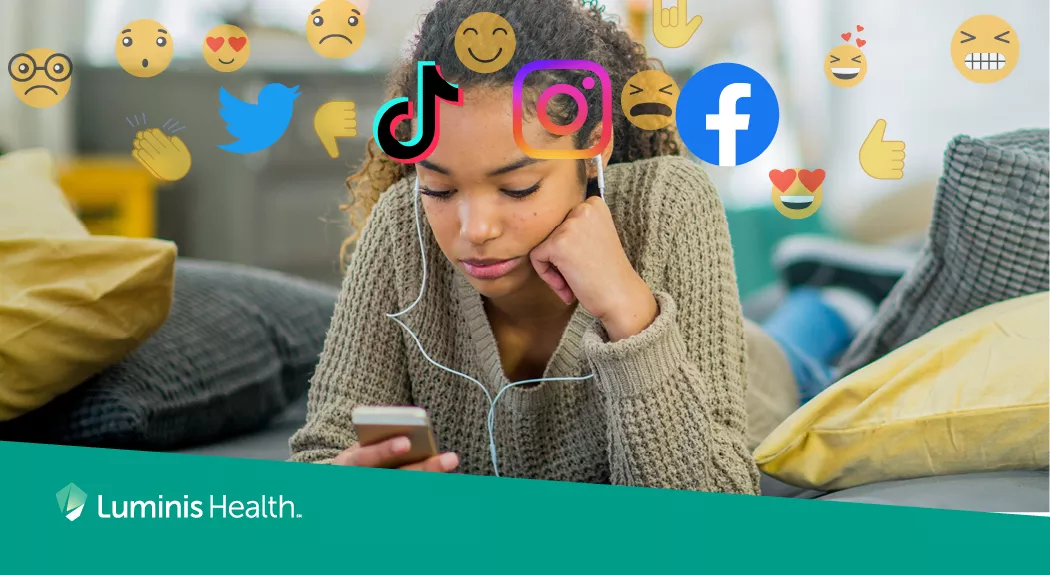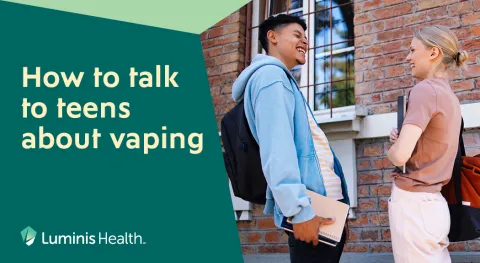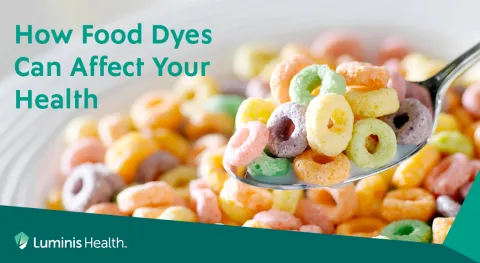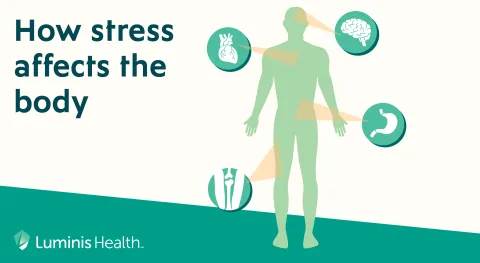Cue the shocking emoji: A staggering 90 percent of teens aged 13 to 17 are using social media. When used correctly, there are benefits to social media, but the negative impacts are contributing to this country’s historic mental health crisis. Excessive use can lead to cyberbullying, low self-esteem, addictive behavior, peer pressure and unrealistic expectations of how their body should look.
Dr. Rakesh Goyal—a psychiatrist at Luminis Health—estimates that nearly 70 percent of his young patients have experienced a negative impact to their mental health because of social media. It’s become such a problem several Maryland school districts are now suing social media companies alleging their addictive platforms are contributing to mental health problems among teens. U.S. Surgeon General Dr. Vivek Murthy even issued a warning recently, calling the impacts of social media on children an “urgent crisis.” It should be a wake-up call for all of us. That’s why we’re here to help.
Pros of Youth Social Media Use
Let’s first begin with the positive aspects of social media. Teens can stay connected with friends, meet new ones with shared interests, find a sense of community and feel more accepted, as well as explore and express themselves.
Of course, each child is different, and you know your child better than anyone. It’s important to realize the impacts of social media can depend on what they do and see online, their preexisting strengths or vulnerabilities, and their living environment. Those between the ages of 10 to 15 years old are especially vulnerable to the influence of social media because their brains and emotions are still developing.
Growing Brains and Evolving Emotions
The brains of preteens, typically between the ages of 10 to 12 years, undergo changes that make social rewards start to feel much more satisfying. Receptors for oxytocin and dopamine—our “happy hormones”—increase, making young teens extra sensitive to attention and admiration from others. At the same time, adolescents are passing through a stage of psychological development in which they give a lot of importance to acceptance and validation from their peers.
The number of views, likes and shares are often important to social media users. It can cause small bursts of dopamine in our brains. Young people especially crave more and more of the “happy hormone” release. At the same time, a hurtful comment or being ignored by others can cause negative self-esteem and extreme sadness.
Protecting Your Child
There are steps you can take with your child to encourage responsible use of social media and limit some of its negative effects. Consider these tips:
- Delay the age at which your child can use social media to 13 and above.
- Educate your child about the risks, pitfalls and red flags of social media use, especially about sharing personal information online.
- Monitor your child’s social media accounts and let them know beforehand that you’ll be doing so. You can mute accounts that are inappropriate.
- Set reasonable limits on how much time your child can spend on social media each day; include parameters about what time of day they are allowed to use it.
- Remind them to treat others on social media the same way they would treat others in person. If they wouldn’t say something out loud, they shouldn’t say it online.
- Be an example of healthy social media use for your child and report problematic content.
Social media is here to stay. But we must ensure teenagers enjoy the its benefits while protecting their mental health. If your teen is feeling depressed and needs immediate help, Luminis Health has a dedicated Behavioral Health Urgent Walk-In Care at our Lanham campus. It’s open Monday through Friday from 8:00 am to 5:00 pm. No appointment necessary. Learn more about our services here.
Author
Rakesh Goyal, MD, is a psychiatrist at Luminis Health specializing in children and adolescents.




